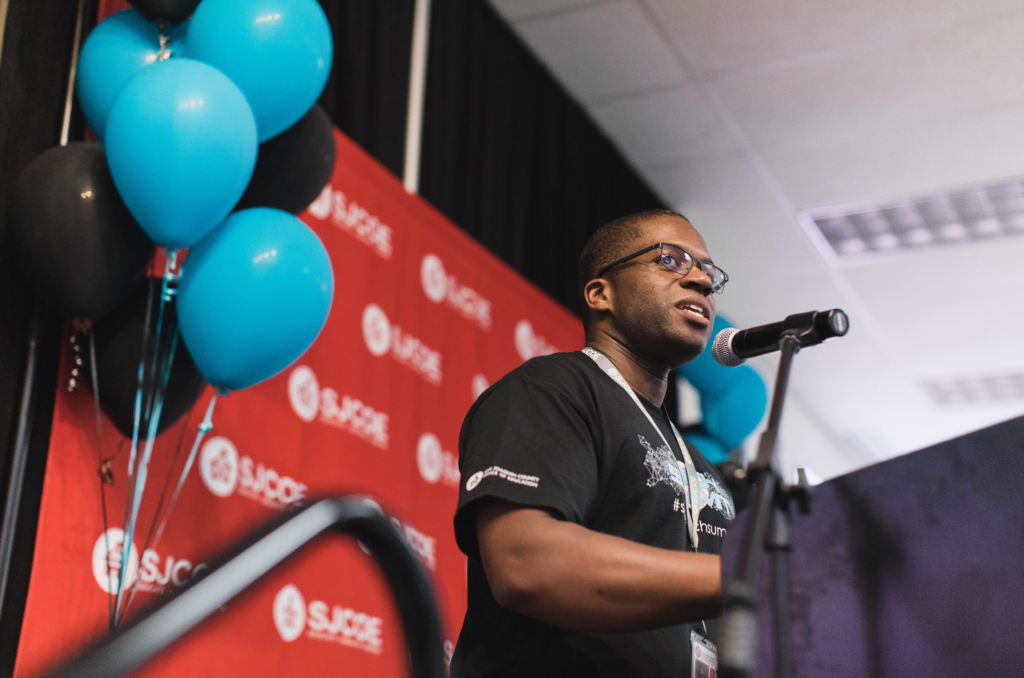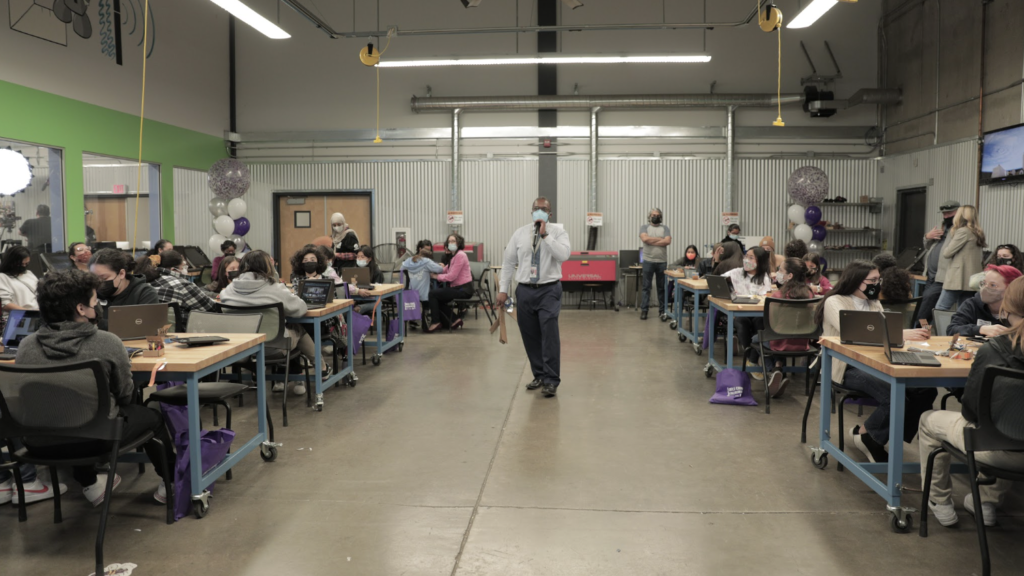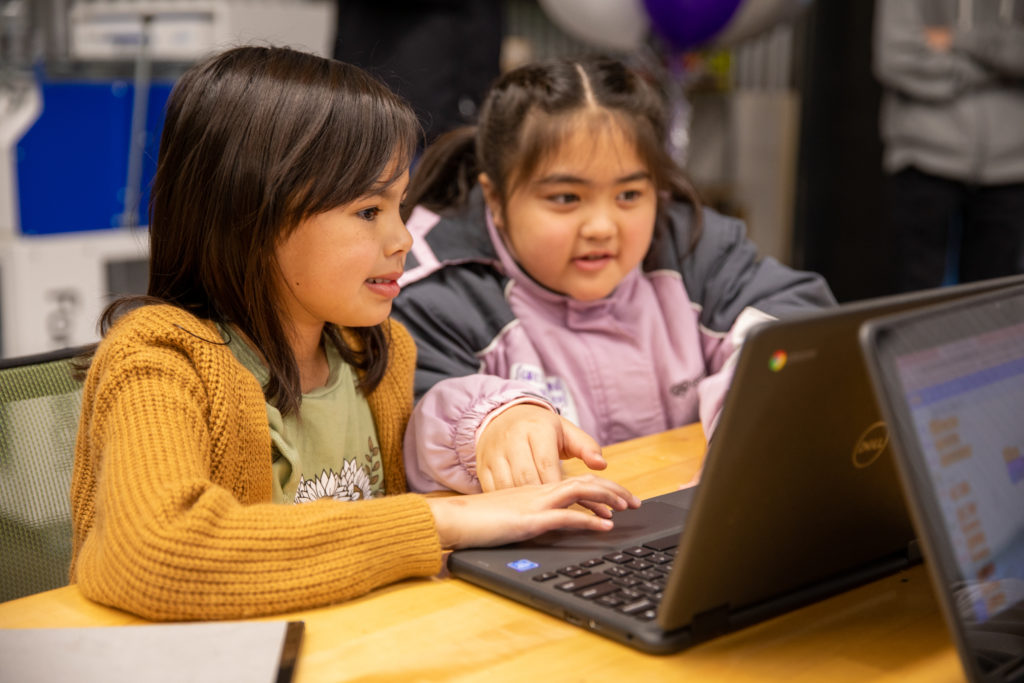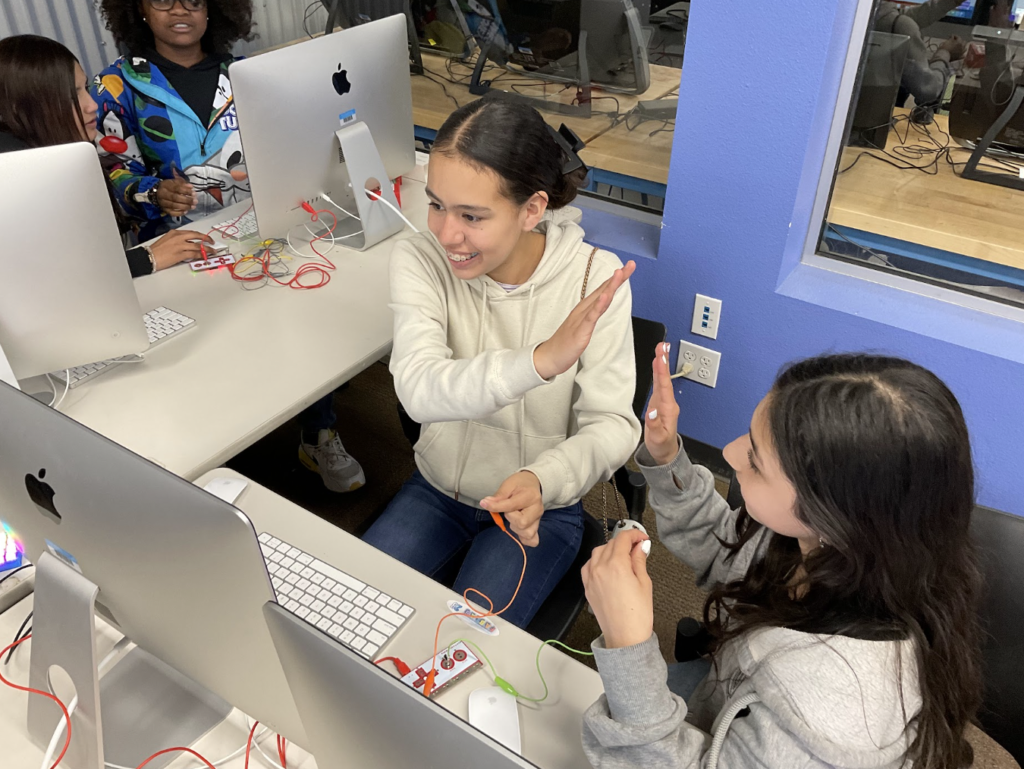
Students deserve accessible opportunities to learn computer science – and educators across California are pioneering unique, creative ways of teaching CS. One such educator is Stephen Callahan, who manages FabLab at the San Joaquin County Office of Education. Read on to learn about Stephen’s background, and how he provides students with hands-on educational experiences that demystify complicated concepts within computer science.
I loved anything to do with computers and would always bug my mom to take me to Radio Shack to look around at what they had. I also would always be at the library using their computers. I even remember one of my teachers letting me come in on a teacher work day to use the computer at school. I eventually managed a computer lab during college, and worked in Silicon Valley in IT directly after graduating. I taught public high school for 13 years, but during that time I was the advisor of the computer science club, and sometimes taught Computer Science at night for a private academy and wrote computer models for an online science textbook. When the San Joaquin County Office of Education had a grant that dealt with computer science, I signed up because it was a chance to use my CS skills. Every opportunity they gave me, I took, and now I work here running the FabLab.
I want to give opportunities to students who don't have them. Computer science is both something that I have ability in, and something that schools have space to grow in in terms of providing all students access, so it seems like the right thing for me to work on. Because there is limited access to CS education, students miss out on well-paying jobs, which can have crucial benefits to their communities. I cannot think of a better way to spend time than helping increase these opportunities.
I manage the SJCOE FabLab. It is a 7,000 square foot makerspace in Stockton, CA. The lab has lots of fun stuff like LEGO robots, ZSpace augmented reality computers, 2 VEX robotics arenas, Little Bits, MicroBits, Spheros and more. Steffany Zanini, FabLab Program Manager, and I run field trips and summer camps for local (and not so local) schools who want their students to learn more about engineering, with a focus on robotics, data, AI and all of Computer Science. I also write computer science curriculum for CodeStack (another division of the SJCOE). I teach computer science and engineering in the STEM Masters program at Teachers College of San Joaquin. I also lead teacher professional development. Lastly, I get to engineer cool exhibits and educational tools for students.

One of my more recent inventions is a computer vision camera that talks to scratch so students can make simple AI programs that respond to different specific items. At our lab, my team is constantly working to engineer devices and lessons to make learning difficult concepts like data science or AI quicker, cheaper, and simpler (by abstracting away unnecessary or distracting barriers). For instance, last week migrant education students were at the lab learning robotics and waves. The wave lessons were taught through engineering sound and music devices. Kids wired electric instruments, programmed sounds in MakeCode and Scratch, built electronic music boxes they got to take home powered by the Raspberry Pi Pico. We also had lots of instruments from around the world that Steffany and I reverse engineered to inspire the kids’ work.
San Joaquin County Office of Education has the largest STEM department of any county office (an amazing and dedicated group of educators led by our brilliant Division Director, Annie Cunial) to help students be able to take advantage of the opportunities they can have with help. While the department provides opportunities like science camp at Sky Mountain, environmental literacy field trips at Durham Ferry and teacher professional development throughout the county, my favorite part is the computer science, technology and CS support the FabLab team provides.
Another part of our CS support is the curriculum we write. CodeStack STEAM is being taught right now in County Operated Schools, the Discovery Challenge Academy, and Juvenile Hall. We have been developing hands-on, engaging curriculum to help students who otherwise might not have access or exposure to computer science. We have also been working to support one of our local districts, Tracy Unified, with writing and PD in their PreK-12 STEM curriculum, where every student gets access to Computer Science from Pre-K - 12. Efforts like these mean that CS doesn't just go to a few students who are lucky enough to have a specific teacher. They mean that everyone is getting access, and that equitable access is important to build a just world.

Computer science gives students economic opportunities, and other important enhancements to their lives. My teaching credentials are in physics, chemistry and math. I taught high school science for over a decade before starting here. In the Next Generation Science Standards, there is this idea that students need to know science for both career and for civic engagement. In other words, we live in a democracy and students should understand how the world around them works because they will make decisions for themselves and others based on that knowledge. Computer Science is similar. Increasingly, the world we live in works based on computers, networks, and data. If students don't understand these topics, they are missing out on understanding their world, communicating and expressing themselves effectively, and making progress.
Every teacher learned science, math and reading in school. Not every teacher learned computer science in school. While it is important that we all have professional development in general to keep learning, it is crucially important to support teachers in computer science. It's new and it can take time and support to learn new things. Teachers and students both deserve access to CS education to improve all of our lives.

My Google Innovator project was about supporting teachers in CS education by teaching them computer science with Apps Script. It is the back-end language that runs the Google Workspace. I also wrote the basics of a block-based programming language called Teacher Blocks. I also have an online series of lessons on our department resource website. Lastly, we just won an NSF grant in partnership with the Concord Consortium to work with local teachers on integrating artificial intelligence into multiple subjects. There are so many new opportunities with CS, and I look forward to our students having access to all of them!
To learn more about FabLab and other STEM opportunities offered by the San Joaquin County Office of Education, check out the FabLab website.

